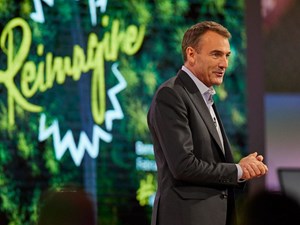BP CEO sees lasting trends in global oil demand growth, limited U.S. crude output
MOSCOW (Bloomberg) --Energy giant BP sees a strong recovery in global crude demand and expects it to last for some time, with U.S. shale production being kept in check, according to CEO Bernard Looney.
“There is a lot of evidence that suggests that demand will be strong, and the shale seems to be remaining disciplined,” Looney told Bloomberg News in St. Petersburg, Russia. “I think that the situation we’re in at the moment could last like this for a while.”
Looney’s comments echo those of other industry executives encouraged by a robust rebound from the pandemic in the U.S., China and Europe. Igor Sechin, CEO of Rosneft PJSC, Russia’s largest oil producer, said last week that growth in energy demand will continue, and that any new virus waves may slow the process but won’t stop it. Mike Muller, head of Asia at trader Vitol Group, said on Sunday that China’s economic growth should help bolster demand, bringing down crude stockpiles.
Related story: Russia’s Rosneft projects global oil shortages during “hasty” energy transition
Brent crude closed above $70 a barrel last week for the first time in more than two years, as mass vaccinations help to reopen some economies in the Northern Hemisphere and improve mobility and oil consumption.
“I believe in vaccines and vaccines are working, we just need to get them to more places,” Looney said.
BP has added rigs to its shale business in the U.S. since scaling back last year, but its activity in the region remained below pre-pandemic levels in the first quarter of the year.
Oil’s demand recovery will be at the point of maximum velocity this month and in July, and it may reach 100 million barrels a day by December, according to a recent report from Standard Chartered Plc.
When asked last week about the demand trajectory, Saudi Energy Minister Prince Abdulaziz bin Salman said he’ll believe it when he sees it, noting that evidence of demand must precede supply.
So far, the Organization of Petroleum Exporting Countries and its allies are sticking to a conservative approach. While the group last week confirmed its plan to ramp up output in July, it didn’t provide guidance as to whether more barrels will be added later this year until there’s evidence more crude is needed. OPEC+ has to manage the risk of the potential return of Iran barrels, along with any spike in cases of coronavirus, which “is a persistent and unpredictable foe,” according to OPEC Secretary-General Mohammad Barkindo.



